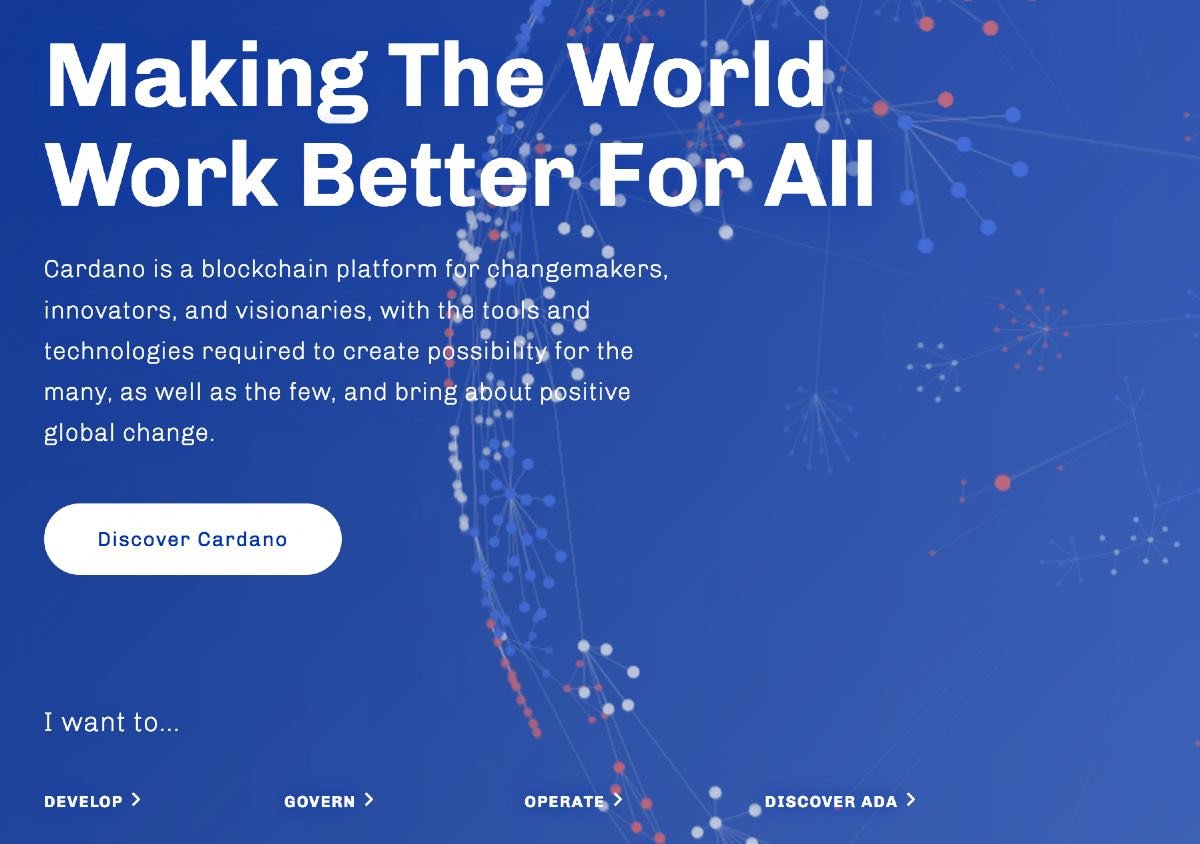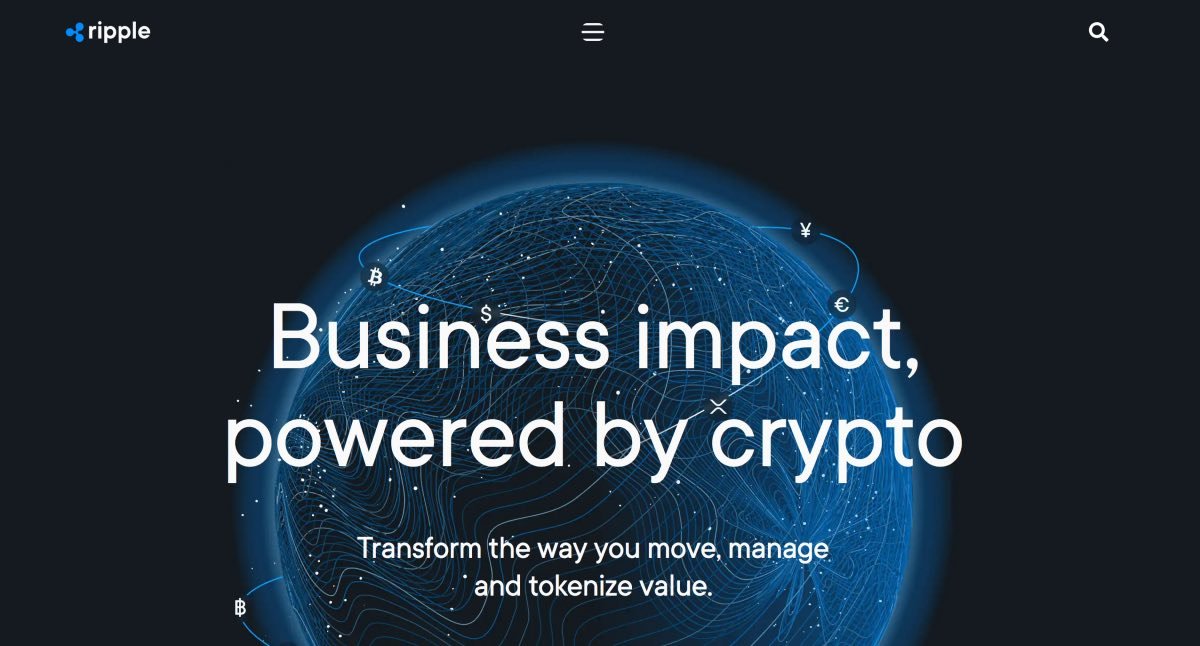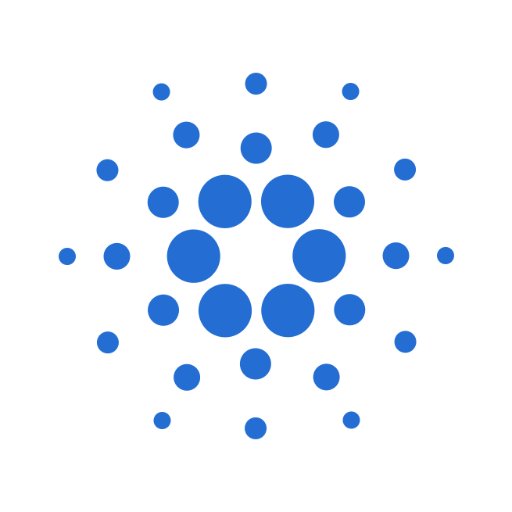Comparar Cardano (ADA) vs Ripple (XRP) Coin
This article will compare two coins with nearly the same market cap. They are among the top 10 cryptocurrencies while not being quite the same in terms of functionality. What makes them a bit similar is that both brands work with entities that initially were not associated with cryptocurrencies. Ripple works closely with banks, and Cardano works with all kinds of organizations and is already used by governments. Let's see the features of these coins and which is the better investment for you.
What Is Cardano?
Cardano is a blockchain-based ecosystem that can host and run decentralized apps (dApps) and smart contracts. In terms of functionality, it resembles Ethereum, but unlike the latter, Cardano was created with the potential for scalability and high operation speed in mind. Bitcoin and Ethereum are both relatively slow networks. It makes their adoption a more challenging task. Cardano is more suitable for everyday use.

The platform was launched in 2015. One of the key creators of Cardano is Charles Hoskinson, one of the Ethereum co-founders. Unlike Buterin, he was positive about making Ethereum a commercial project. That's why Hoskinson was omitted from the Ethereum team, and also, that's why Cardano was more inclusive in terms of sponsorships and partnerships.
The native token of the Cardano ecosystem is ADA. As of July 2022, the token's market cap exceeds $15 billion. Several governments use Cardano to handle data, while celebs and global brands use the apps built on Cardano. It's safe to say that Cardano is a successful project, and it continues its growth and development.
What Is Ripple?
Ripple is a payment protocol. It uses a cryptocurrency called XRP, which is often called Ripple, although that's not entirely correct. The platform was launched in 2012 in the US. Ripple was among the first significant cryptocurrency brands to cooperate with banks and financial institutions, which was unusual for the cryptocurrency industry at that period. Some criticized Ripple for relative centralization, while others praised the fast speed of the network and low fees.

In 2017 and 2018, Ripple was a scorching topic online. At some point, XRP's market cap was the second biggest after Bitcoin's. 2020 wasn't that bright for Ripple, and the coin went below its usual third position in the rating. Also, 2020 was the year when Ripple went under attack from the SEC and was delisted by Coinbase. As of July 2022, XRP holds the 7th position with a market cap exceeding $15 billion.
Cardano vs. Ripple (table)
| Factor | Cardano (ADA) | Ripple (XRP) |
| The price as of July 2022 | $0.45 | $0.31 |
| Market cap as of July 2022 | $15.2 billion | $15.3 billion |
| Rank as of July 2022 | #8 | #7 |
| All-time high | $3.09 (September 2, 2021) | $3.4 (January 7, 2018) |
| Decline (compared to all-time high) | 85.4% | 90.7% |
| All-time low | $0.019 (March 13, 2020) | $0.00268 (May 22, 2014) |
| Growth (compared to an all-time low) | 2,234.1% | 11,669% |
| Popular markets | Binance, Digifinex, Upbit, Coinbase, HitBTC | Binance, Upbit, Bitget, HitBTC, FMFW.io |
| Platform | Cardano | Ripple |
| Consensus mechanism | Proof-of-Stake | Ripple Protocol Consensus Algorithm (RPCA) |
| Products | IOHK, EMURGO | Ripple Academia, SBI Ripple Asia |
| Use cases | Smart contracts, dApps, data, financial operations | Financial operations |
Cardano vs. Ripple (details)
The price and the market cap
In terms of market cap, ADA and XRP are the closest rivals. As of July 2022, both cryptocurrencies have a market cap of around $15 billion and occupy the 7th and the 8th positions in the rating. The prices for both coins are in the same zone – between 30 and 50 cents per coin. In general, ADA tends to have a higher price than XRP. The latter never reached a 90 cents mark in the latest 180 days, while ADA crossed the $1 line several times in the same period of time.
One may suggest that XRP's best days are gone. The coin reached its all-time high back in 2018. ADA had its highest price in September of 2021. Both ATHs were about the same – between $3 and $3.5. In general, it seems that ADA performs better than XRP as of now. Not that we are claiming that XRP has no future, but Cardano's coin price trajectory appears to be more promising.
Popular markets
It is not hard to guess that as the market leaders, both coins are heavily presented on crypto exchanges. What is less obvious is that because of legal issues with Ripple, XRP was dropped by the largest US exchange Coinbase. In this sense, Cardano (ADA) has a more solid presence on the market. It's worth saying, though, that a single huge exchange delisting XRP is not a tragedy for the future of this coin. Even in the US, XRP is available on many top exchanges, including Kraken and many others.
Platform
Both ecosystems are based on their custom platforms. It makes them independent and robust compared to rivals building their platforms on top of third-party blockchains.
Consensus mechanism
Cardano and Ripple use eco-friendly consensus mechanisms. Cardano leans on a popular Proof-of-Stake. Ripple is based on its unique consensus mechanism, The Ripple Protocol consensus algorithm (RPCA). Both protocols are criticized for limited decentralization. Nevertheless, both of them still work the way they should. We can't say anything bad about PoS and RPCA, nor can we prefer one over the other.
Products
The additional products of both ecosystems are barely aimed at an end-user and are instead targeted at researchers and entrepreneurs. It is not bad, however, adding some products would have benefited both Ripple and Cardano.
Use cases
Speaking of use cases, we should note that Ripple is a less inclusive platform. It was created mainly for private banking purposes, and it doesn't have that much to offer on top of serving as a payment operator. Cardano is a multi-functional project that can be used to build other diverse products. It makes Cardano more versatile than Ripple. Potentially, Cardano's use cases can cover a bigger population.
| Empresa |
|---|
User rating
| 7 reseñas de los usuarios | 4 reseñas de los usuarios |
Cryptogeek rating
Puntaje de confianza
¿Cómo funciona?Sobre
|
La moneda Cardano (ADA) es una criptomoneda lanzada en 2017. La moneda se basa en la red Cardano. El líder del equipo de desarrollo es Charles Hoskinson, un desarrollador experimentado que trabajó para Ethereum y BitShares antes del lanzamiento de Cardano. Cardano es la primera criptomoneda en utilizar código de código abierto revisado académicamente por pares, lo que hace que este proyecto sea bastante único. El algoritmo de consenso de Cardano es Prueba de participación. Cardano suele ser elogiado por su alto nivel de seguridad y sus transacciones rápidas. La moneda Cardano rápidamente ganó valor y se convirtió en una de las 10 principales criptomonedas por capitalización de mercado.
|
Ripple es un protocolo de pago global destinado a proporcionar transacciones rápidas y pagos baratos a nivel internacional. La red utiliza una moneda digital conocida como XRP (a veces se la conoce como Ripple). A diferencia de otras criptomonedas, Ripple no tiene como objetivo reemplazar a los bancos, sino que este proyecto se creó para mejorar el trabajo de los bancos (incluidas las transacciones entre diferentes bancos) a través de soluciones blockchain.
|
Tipo
| coin | coin |
Fecha de creación
| 2017 | 2012 |
País
| International | International |
Idiomas
| Sin datos | Sin datos |
Equipo
| Public | Public |
Protocolo
| Public blockchain | Public blockchain |
Precio actual (USD)
| 0.9272 | 3.1047 |
Punto más alto (USD)
| 1.3300 | 3.8400 |
Intercambiar en el precio (24h)
| 2.68 | 1.62 |
Volumen (24h)
| 79578217.21313 | 510095330.83559 |
Hashrate
| Sin datos | Sin datos |
Suministros máximos
| 45000000000.00000 | 99999999999.99999 |
Suministro total
| Sin datos | Sin datos |
Suministros circulantes
| 45000000000.00000 | 99985808022.00000 |
Velocidad de transacción / Tiempo de Bloque
| 50 | 1500 |
Comisión de transacción
| Sin datos | Sin datos |
Rentabilidad minera
| Sin datos | Sin datos |
Algoritmo
| Ouroboros | Sin datos |
Tipo de prueba
| PoS | Sin datos |
Totalmente preminado
| Sin datos | Sin datos |
Dirección de contrato inteligente
| Sin datos | Sin datos |
Total de monedas extraídas
| 25927070538.00000 | Sin datos |
Es el comercio
| yes | Sin datos |
Recompensa de bloque
| 0.000000000000 | Sin datos |
Tiempo de bloque
| Sin datos | Sin datos |
| Empresa | ||
|---|---|---|
| User rating | 7 reseñas de los usuarios | 4 reseñas de los usuarios |
| Cryptogeek rating | ||
| Puntaje de confianza ¿Cómo funciona? |
| Sobre |
La moneda Cardano (ADA) es una criptomoneda lanzada en 2017. La moneda se basa en la red Cardano. El líder del equipo de desarrollo es Charles Hoskinson, un desarrollador experimentado que trabajó para Ethereum y BitShares antes del lanzamiento de Cardano. Cardano es la primera criptomoneda en utilizar código de código abierto revisado académicamente por pares, lo que hace que este proyecto sea bastante único. El algoritmo de consenso de Cardano es Prueba de participación. Cardano suele ser elogiado por su alto nivel de seguridad y sus transacciones rápidas. La moneda Cardano rápidamente ganó valor y se convirtió en una de las 10 principales criptomonedas por capitalización de mercado.
|
Ripple es un protocolo de pago global destinado a proporcionar transacciones rápidas y pagos baratos a nivel internacional. La red utiliza una moneda digital conocida como XRP (a veces se la conoce como Ripple). A diferencia de otras criptomonedas, Ripple no tiene como objetivo reemplazar a los bancos, sino que este proyecto se creó para mejorar el trabajo de los bancos (incluidas las transacciones entre diferentes bancos) a través de soluciones blockchain.
|
|---|---|---|
| Tipo | Tipo coin | Tipo coin |
| Fecha de creación | Fecha de creación 2017 | Fecha de creación 2012 |
| País | País International | País International |
| Idiomas | Idiomas Sin datos | Idiomas Sin datos |
| Equipo | Equipo Public | Equipo Public |
| Protocolo | Protocolo Public blockchain | Protocolo Public blockchain |
| Precio actual (USD) | Precio actual (USD) 0.9272 | Precio actual (USD) 3.1047 |
| Punto más alto (USD) | Punto más alto (USD) 1.3300 | Punto más alto (USD) 3.8400 |
| Intercambiar en el precio (24h) | Intercambiar en el precio (24h) 2.68 | Intercambiar en el precio (24h) 1.62 |
| Volumen (24h) | Volumen (24h) 79578217.21313 | Volumen (24h) 510095330.83559 |
| Hashrate | Hashrate Sin datos | Hashrate Sin datos |
| Suministros máximos | Suministros máximos 45000000000.00000 | Suministros máximos 99999999999.99999 |
| Suministro total | Suministro total Sin datos | Suministro total Sin datos |
| Suministros circulantes | Suministros circulantes 45000000000.00000 | Suministros circulantes 99985808022.00000 |
| Velocidad de transacción / Tiempo de Bloque | Velocidad de transacción / Tiempo de Bloque 50 | Velocidad de transacción / Tiempo de Bloque 1500 |
| Comisión de transacción | Comisión de transacción Sin datos | Comisión de transacción Sin datos |
| Rentabilidad minera | Rentabilidad minera high | Rentabilidad minera low |
| Algoritmo | Algoritmo Ouroboros | Algoritmo Sin datos |
| Tipo de prueba | Tipo de prueba PoS | Tipo de prueba Sin datos |
| Totalmente preminado | Totalmente preminado Sin datos | Totalmente preminado Sin datos |
| Dirección de contrato inteligente | Dirección de contrato inteligente Sin datos | Dirección de contrato inteligente Sin datos |
| Total de monedas extraídas | Total de monedas extraídas 25927070538.00000 | Total de monedas extraídas Sin datos |
| Es el comercio | Es el comercio yes | Es el comercio Sin datos |
| Recompensa de bloque | Recompensa de bloque 0.000000000000 | Recompensa de bloque Sin datos |
| Tiempo de bloque | Tiempo de bloque Sin datos | Tiempo de bloque Sin datos |
Social
Sitio web
| www.cardano.org | ripple.com |
| Cardano | @Ripple |
| Sitio web | Sitio web www.cardano.org | Sitio web ripple.com |
|---|---|---|
| Twitter Cardano | Twitter @Ripple |
Ventajas
| Friendly Peer-reviewed technology Scalable | Affordable Solves problems and creates opportunities Moving into CBDCs |
Desventajas
| Competitors in the same space Still in development Multiple chains | Not decentralized Uses a pre-mining protocol |
Clasificación
| User rating | User rating 7 reseñas de los usuarios | User rating 4 reseñas de los usuarios |
|---|---|---|
| Cryptogeek rating | Cryptogeek rating | Cryptogeek rating |
| Ventajas | Ventajas Friendly Peer-reviewed technology Scalable | Ventajas Affordable Solves problems and creates opportunities Moving into CBDCs |
| Desventajas | Desventajas Competitors in the same space Still in development Multiple chains | Desventajas Not decentralized Uses a pre-mining protocol |
La calificación de Cardano (ADA) es 4.3, basada en 7 opiniones de usuarios. La calificación de los usuarios de Ripple (XRP) es 5, basada en 4 opiniones de los usuarios.
We also calculate the special Cryptogeek TrustScore based on the characteristics of each coin.
| Elegimos al ganador basado en nuestra calificación de confianza ¡Por favor recuerde, todavía depende de usted que empresa elegir! ¿Cómo calculamos el puntaje de confiaza? |
We can't say that buying ADA is better than buying XRP and vice versa. It depends on your goals. If you want a diversified portfolio, you can have both coins. If you choose crypto that performs better on the market in terms of price, you can see that ADA has had better stats lately. Of course, it doesn't necessarily mean it has a brighter future than XRP. Nevertheless, if you wish to have crypto with better ties with banks, then XRP can be a better pick than ADA.
This article will compare two coins with nearly the same market cap. They are among the top 10 cryptocurrencies while not being quite the same in terms of functionality. What makes them a bit similar is that both brands work with entities that initially were not associated with cryptocurrencies. Ripple works closely with banks, and Cardano works with all kinds of organizations and is already used by governments. Let's see the features of these coins and which is the better investment for you.
What Is Cardano?
Cardano is a blockchain-based ecosystem that can host and run decentralized apps (dApps) and smart contracts. In terms of functionality, it resembles Ethereum, but unlike the latter, Cardano was created with the potential for scalability and high operation speed in mind. Bitcoin and Ethereum are both relatively slow networks. It makes their adoption a more challenging task. Cardano is more suitable for everyday use.

The platform was launched in 2015. One of the key creators of Cardano is Charles Hoskinson, one of the Ethereum co-founders. Unlike Buterin, he was positive about making Ethereum a commercial project. That's why Hoskinson was omitted from the Ethereum team, and also, that's why Cardano was more inclusive in terms of sponsorships and partnerships.
The native token of the Cardano ecosystem is ADA. As of July 2022, the token's market cap exceeds $15 billion. Several governments use Cardano to handle data, while celebs and global brands use the apps built on Cardano. It's safe to say that Cardano is a successful project, and it continues its growth and development.
What Is Ripple?
Ripple is a payment protocol. It uses a cryptocurrency called XRP, which is often called Ripple, although that's not entirely correct. The platform was launched in 2012 in the US. Ripple was among the first significant cryptocurrency brands to cooperate with banks and financial institutions, which was unusual for the cryptocurrency industry at that period. Some criticized Ripple for relative centralization, while others praised the fast speed of the network and low fees.

In 2017 and 2018, Ripple was a scorching topic online. At some point, XRP's market cap was the second biggest after Bitcoin's. 2020 wasn't that bright for Ripple, and the coin went below its usual third position in the rating. Also, 2020 was the year when Ripple went under attack from the SEC and was delisted by Coinbase. As of July 2022, XRP holds the 7th position with a market cap exceeding $15 billion.
Cardano vs. Ripple (table)
| Factor | Cardano (ADA) | Ripple (XRP) |
| The price as of July 2022 | $0.45 | $0.31 |
| Market cap as of July 2022 | $15.2 billion | $15.3 billion |
| Rank as of July 2022 | #8 | #7 |
| All-time high | $3.09 (September 2, 2021) | $3.4 (January 7, 2018) |
| Decline (compared to all-time high) | 85.4% | 90.7% |
| All-time low | $0.019 (March 13, 2020) | $0.00268 (May 22, 2014) |
| Growth (compared to an all-time low) | 2,234.1% | 11,669% |
| Popular markets | Binance, Digifinex, Upbit, Coinbase, HitBTC | Binance, Upbit, Bitget, HitBTC, FMFW.io |
| Platform | Cardano | Ripple |
| Consensus mechanism | Proof-of-Stake | Ripple Protocol Consensus Algorithm (RPCA) |
| Products | IOHK, EMURGO | Ripple Academia, SBI Ripple Asia |
| Use cases | Smart contracts, dApps, data, financial operations | Financial operations |
Cardano vs. Ripple (details)
The price and the market cap
In terms of market cap, ADA and XRP are the closest rivals. As of July 2022, both cryptocurrencies have a market cap of around $15 billion and occupy the 7th and the 8th positions in the rating. The prices for both coins are in the same zone – between 30 and 50 cents per coin. In general, ADA tends to have a higher price than XRP. The latter never reached a 90 cents mark in the latest 180 days, while ADA crossed the $1 line several times in the same period of time.
One may suggest that XRP's best days are gone. The coin reached its all-time high back in 2018. ADA had its highest price in September of 2021. Both ATHs were about the same – between $3 and $3.5. In general, it seems that ADA performs better than XRP as of now. Not that we are claiming that XRP has no future, but Cardano's coin price trajectory appears to be more promising.
Popular markets
It is not hard to guess that as the market leaders, both coins are heavily presented on crypto exchanges. What is less obvious is that because of legal issues with Ripple, XRP was dropped by the largest US exchange Coinbase. In this sense, Cardano (ADA) has a more solid presence on the market. It's worth saying, though, that a single huge exchange delisting XRP is not a tragedy for the future of this coin. Even in the US, XRP is available on many top exchanges, including Kraken and many others.
Platform
Both ecosystems are based on their custom platforms. It makes them independent and robust compared to rivals building their platforms on top of third-party blockchains.
Consensus mechanism
Cardano and Ripple use eco-friendly consensus mechanisms. Cardano leans on a popular Proof-of-Stake. Ripple is based on its unique consensus mechanism, The Ripple Protocol consensus algorithm (RPCA). Both protocols are criticized for limited decentralization. Nevertheless, both of them still work the way they should. We can't say anything bad about PoS and RPCA, nor can we prefer one over the other.
Products
The additional products of both ecosystems are barely aimed at an end-user and are instead targeted at researchers and entrepreneurs. It is not bad, however, adding some products would have benefited both Ripple and Cardano.
Use cases
Speaking of use cases, we should note that Ripple is a less inclusive platform. It was created mainly for private banking purposes, and it doesn't have that much to offer on top of serving as a payment operator. Cardano is a multi-functional project that can be used to build other diverse products. It makes Cardano more versatile than Ripple. Potentially, Cardano's use cases can cover a bigger population.

